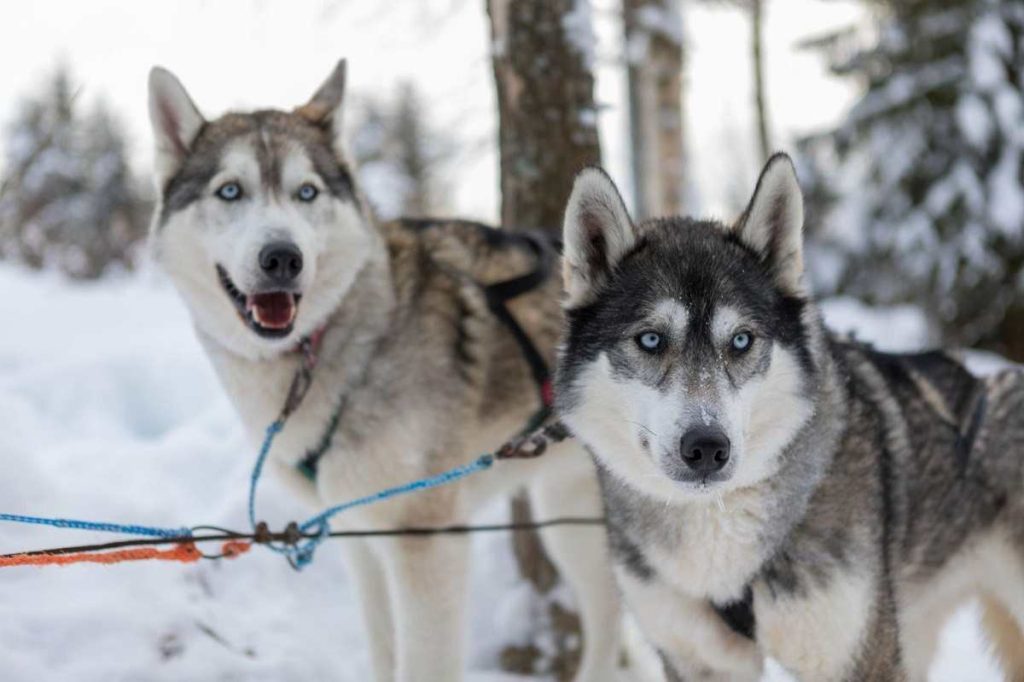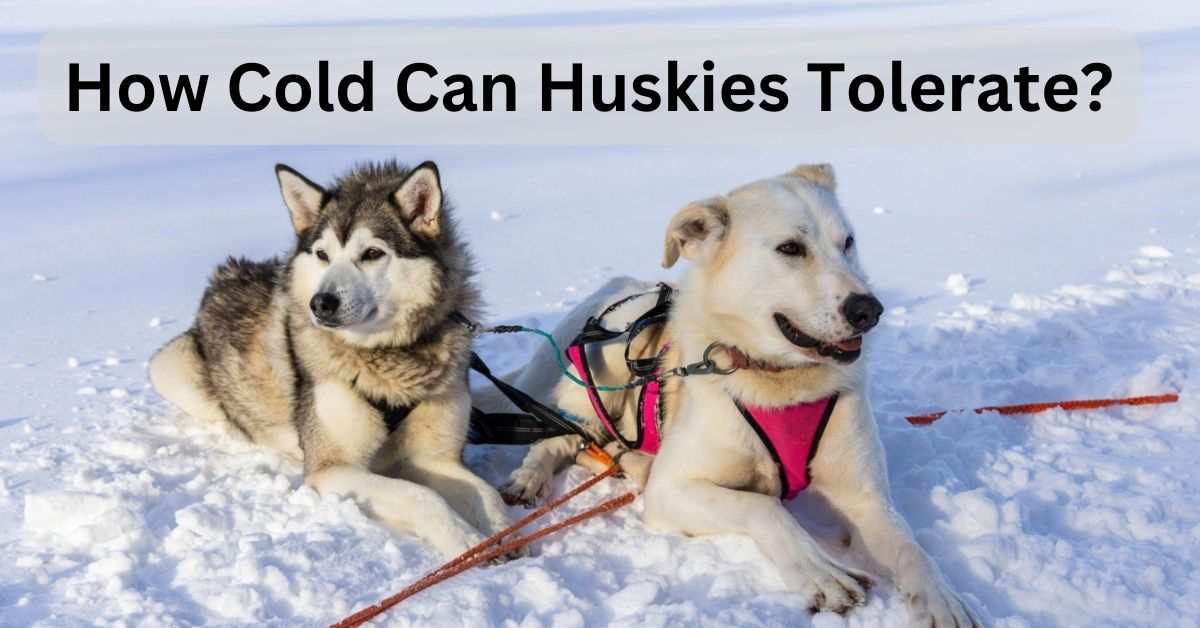Huskies are known for their stunning appearance and incredible ability to thrive in cold climates. Their thick double coat and wolf-like appearance set them apart from other dog breeds.
But just how cold can Huskies tolerate, and what should Husky owners know to keep their furry companions comfortable and safe during the chilly months? In this article, we will explore the fascinating world of Huskies and their cold weather tolerance.
Understanding Huskies and Their Unique Physiology
Huskies are a remarkable breed, originally developed by the Chukchi people of Siberia to pull sleds in harsh Arctic conditions.
Their physiology is tailored for cold weather survival, with dense fur and a compact body that conserves heat. Huskies are built to withstand extreme temperatures, and this is an integral part of their genetic makeup.
The Ideal Temperature Range for Huskies
Huskies are most comfortable in cold weather, typically thriving in temperatures between 20°F to -60°F (-6°C to -51°C).
Their unique coat acts as an insulator, keeping them warm even in subzero temperatures. However, their cold tolerance varies from one individual to another, and factors like age, health, and acclimatization play a role.

How Huskies Adapt to Cold Climates
These dogs have several natural adaptations that help them endure cold climates. Their fur is not only thick but also self-cleaning, preventing ice buildup.
They have a strong prey drive and love to run, which generates body heat, keeping them warm. Additionally, Huskies have a keen sense of direction and can find shelter in blizzard conditions.
Signs of Cold Stress in Huskies
It’s crucial for Husky owners to recognize the signs of cold stress, such as shivering, seeking shelter, or lifting their paws. When a Husky is cold, they will exhibit discomfort, and it’s essential to respond to their needs promptly.
Preparing Your Husky for Cold Weather
To ensure your Husky stays warm, provide shelter and bedding. Regular exercise is crucial to keep their blood flowing and body warm. Huskies love playing in the snow, so embrace their enthusiasm and have some fun outdoors.
Huskies and Cold-Related Health Issues
In extremely cold conditions, Huskies are at risk of frostbite and hypothermia. Learn the symptoms and preventative measures to protect your furry friend from these cold-related health issues.
Ways to Keep Your Husky Warm
Discover various methods for keeping your Husky warm, from using dog sweaters to heated dog houses. There are numerous options to choose from, ensuring your Husky’s comfort in colder climates.
Exercise and Cold Weather
Exercise remains essential for Huskies during the winter months. Engage in activities like sledding, skijoring, or even a game of fetch to keep your Husky active and happy.
Indoor vs. Outdoor Huskies
Consider whether your Husky is more comfortable indoors or outdoors in the cold. Both options have their advantages and drawbacks, and it’s essential to cater to your Husky’s needs.
Winter Accessories for Huskies
Invest in winter gear for your Husky, including booties to protect their paws and insulated jackets to keep them warm during chilly walks. These accessories are not just stylish but also functional.
Common Myths About Huskies and Cold
Debunk common myths, like Huskies never feeling cold or not needing shelter. Separating fact from fiction will help you make the right choices for your Husky in cold weather.
Huskies in Extreme Cold
Huskies have been known to survive in extreme cold, but what happens when temperatures drop to record lows? Learn how these dogs cope when facing the harshest winter conditions.
Traveling with Your Husky in Winter
If you plan on traveling with your Husky during winter, make sure to prepare accordingly. Tips for safe winter travel with your Husky will ensure a pleasant and secure journey.
Conclusion
In conclusion, Huskies are remarkable cold-weather companions, thanks to their unique physiology and natural adaptations.
They can tolerate temperatures far colder than most other dog breeds. However, it’s essential for Husky owners to be attentive to their pets’ needs, provide proper care, and be aware of cold-related health risks.
FAQs
Yes, Huskies require extra care in cold weather to ensure their comfort and safety.
Yes, Huskies can thrive in extremely cold conditions, but it’s essential to provide appropriate shelter and care.
Winter accessories such as insulated jackets, booties, and heated beds can help keep Huskies warm in the winter.
By being aware of the symptoms and taking preventative measures like providing shelter and limiting exposure to extreme cold.
While they’re more comfortable in the cold, Huskies can adapt to warmer climates, but it’s important to manage their exposure to heat and keep them cool.
